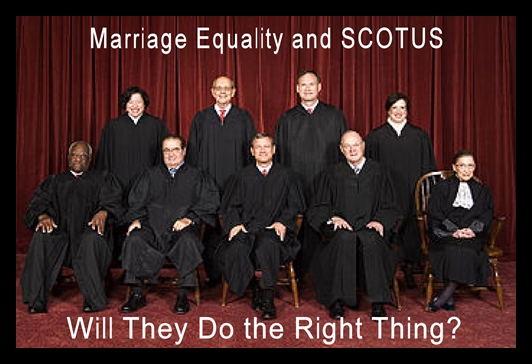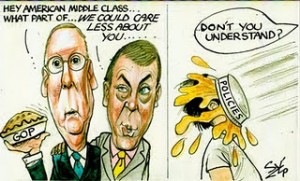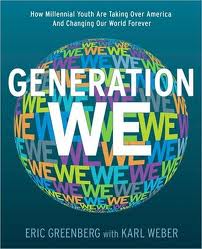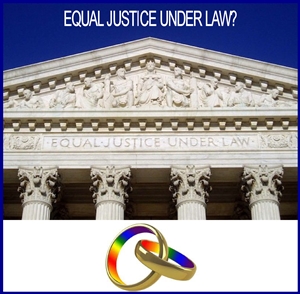
On November 6, three more states joined the ranks of the enlightened by passing marriage equality. Now nine states (Connecticut, Iowa, Maine, Maryland, Massachusetts, New Hampshire, New York, Vermont, and Washington) plus the District of Columbia are entitled to the moniker “equality state,” and deserve applause for riding the rainbow arc of the universe toward justice.
This past Monday, the Supreme Court of the United States made the long-awaited announcement that it will hear arguments on several cases concerning marriage equality. LGBT activists met this news with great excitement, and not a little trepidation. Finally, the highest court in the land will rule, once and for all, on the fate of two ferociously controversial pieces of legislation.
The Court will hear the challenge to California’s Proposition 8, which has been the subject of years of legal wrangling, and the root of enormous emotional stress for California’s LGBT couples. By the time a decision is handed down, the issue of marriage equality for Californians will have been tossed about like a hot potato for nearly nine years. A brief history.
Starting in February 2004, for a blissful month (before the Supreme Court of California ordered a stay), under Mayor Gavin Newsom, San Francisco began to issue same-sex marriage licenses. In its August 2004 decision, the court found that state law had been violated in the granting of these licenses, and each and every one of the 4,000 marriages that had been performed in that six-month period was declared null and void. Imagine being a spouse in that circumstance.
In May 2008, the same court ruled that it was unconstitutional to deny lesbians and gays the fundamental right to marry. In the following heady months, more than 11,000 couples were married in California. Imagine being a spouse in such a couple, only to face a vote by the population on the legality of your marriage. That is exactly what happened when Prop 8, a constitutional amendment banning same-sex marriage, passed by 52 percent of the vote on Election Day 2008. The marriages that had been completed during the brief window of opportunity were upheld, but that did not take away the sting of rejection for these couples—instantly relegated to second-class citizen status—not to mention all the LGBT couples wishing to marry who had to watch their hopes for justice swirl down the drain of discrimination.
In the now-famous Prop 8 trial in 2010, Perry v. Schwarzenegger, federal judge Vaughn Walker ruled the ban unconstitutional pending appeal, but kept the stay on marriages, which continues to this day, as we await the final result of this long legislative battle, expected by June 2013. Imagine being one of the four plaintiffs in the Prop 8 trial, or one of the tens of thousands of other LGBT adults in California who simply want their fundamental right to marry to be legally acknowledged.
If the Court had declined to hear the challenge to Prop 8, the lower court ruling would have stood and marriages in California could have resumed immediately. There were many who wanted that, even as they hoped that the Court’s decision to go forward would be the only way to put the final nail in this controversy’s coffin.
Plaintiff Kris Perry said, “As much as Sandy and I want to be married, we wanted to be plaintiffs in this case because we want everyone in California to be able to get married, and frankly, everyone in the Untied States. What we ultimately wanted was the very biggest and broadest and boldest outcome possible.”
Ted Olson, co-counsel for the plaintiffs in Perry, expressed optimism that the Court will rule in favor of justice and equality: “[T]his case was a perfect vehicle to decide the fundamental rights of all Americans with respect to the right to marry, and we could not be more gratified that this is the case the court will have before it with respect to these issues.”
The other major marriage equality case to be brought before the Court involves the long-standing Defense of Marriage Act (DOMA), enacted under President Clinton in 1996, and still in effect even in the equality states, by which marriage for federal, legal purposes is recognized as solely between one man and one woman. In the sixteen years since DOMA entered the books, thousands and thousands of spouses have been denied benefits—healthcare, pensions, hospital visitation rights, inheritances, insurance—for themselves and their offspring (the list goes on), and have suffered in countless emotional and physical ways.
The specific DOMA case to be heard involves 83-year-old Edith Windsor, who had to pay more more than $360,000 in estate taxes on the death of her spouse, Thea Spyer, because, under DOMA, their marriage was nonexistent. A lower court found for Ms. Windsor in October. Indeed, several lower-court DOMA cases have found the law to be unconstitutional. Now we wait to see if the Supreme Court will chuck this codified discrimination into the dustbin where it belongs.
Ms. Windsor said, “When Thea and I met nearly 50 years ago, we never could have dreamed that the story of our life together would be before the Supreme Court as an example of why gay married couples should be treated equally, and not like second-class citizens. While Thea is no longer alive, I know how proud she would have been to see this day. The truth is, I never expected any less from my country.”
The world’s LGBT community is placing their trust in the attorneys who will be arguing for justice in these two cases: Ted Olson and David Boies, who successfully argued against Prop 8 in Perry; and, representing Edie Windsor, the American Civil Liberties Union, self-described as “our nation’s guardian of liberty, working daily in courts, legislatures and communities to defend and preserve the individual rights and liberties that the Constitution and laws of the United States guarantee everyone in this country.”
Marriage was found by the Supreme Court to be a fundamental right in the landmark case of Loving v. Virginia, way back in 1967. That case addressed the unjust laws on the books banning interracial marriage. Now we wait for the Court to follow that precedent, with respect to the rights of our LGBT citizens. Anything less will perpetuate codified bigotry and discrimination, and cannot stand.
_______________________________________________________________________________________________________
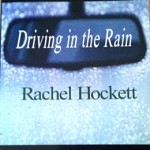
Learn more about Rachel’s new novel here —-> Driving in the Rain
Join Rachel on Facebook here —-> The Equality Mantra
The High-Court Test for Marriage Equality,
